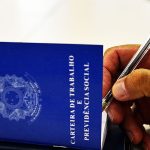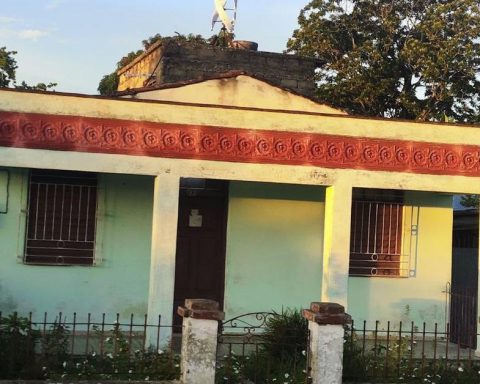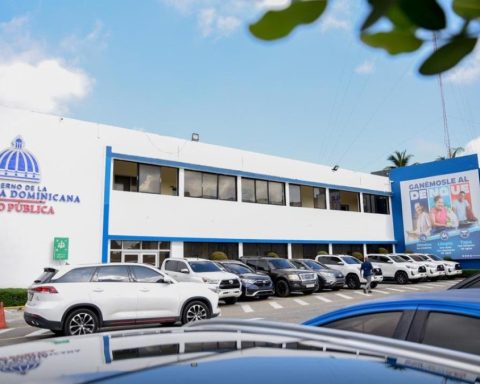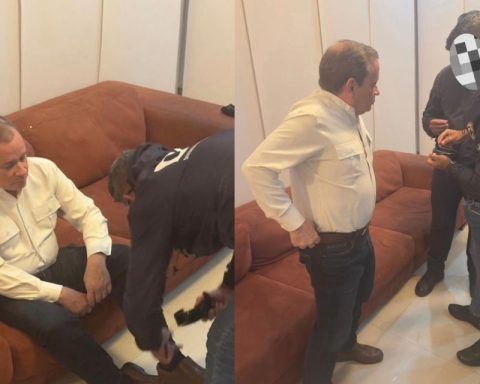Last Wednesday, the Chamber of Deputies and Deputies finished voting on a series of bills that were put on the table, for which the legislative week was suspended in order to focus exclusively on legislating on security. A series of projects were configured – some of the Government’s initiative, and others, parliamentary motions -, which have to do with many of the measures that were defined in the Transversal Table for Security, which worked to arrive at approximately 70 measures, some of them legislative and other administrative, and who worked with the Government. This is how the deputy and member of the Chamber Security Commission, Alejandra Placencia (PC), details how the heated week in Congress was this week.
Legitimate privileged defense. It is one of the most commented measures of the Naín-Retamal Law, which invokes the presumption of the justified use of service weapons and other means of defense by uniformed officers and plainclothes police. Specifically, the project uses the current figure of article 10, No. 6 of the Criminal Code, which establishes the presumption of the use of legitimate defense when a person tries to prevent a criminal from entering certain private properties. One of these modifications refers to the circumstances that exempt from criminal responsibility. This mechanism of “privileged legitimate defense” for the police officers of the Order and Security Forces is added here. This applies in case of use of a lethal weapon in the exercise of their functions.
A measure that causes rejection in Approve Dignity, and about which Deputy Placencia assured that: “We raised the alert a long time ago on this particular issue, because I am a member of the Security Commission and there we already had a debate open about whether this had to be allowed to move forward or not, in this particular article, which, as I said, does not regulate the exercise of police work, since the police have the possibility of using their service weapon at all events and this will not be investigated”.
-What is the reason for your disposition contrary to certain specific aspects of the Naín-Retamal Law?
-What we do not accept, in the particular case of the Naín-Retamal Law, is an article that has to do with privileged legitimate defense. We voted in favor of many other aspects, and by the way they are in line with what I am saying, to fully strengthen police work. But what this particular one does is leave the police outside the rule of law, even international organizations have already ruled on the matter, experts in crime and security matters have also mentioned it. In the few countries where this operates, it has meant an increase in deaths or irreparable damage on the street to innocent people, in proceedings. So, with all that it has cost us to strengthen democracy and our institutions, especially to recover legitimacy in police institutions, today with this they would again be questioning and questioning.
-When did you realize that the implications of this regulation could contradict the government’s security agenda?
-We raised the alert a long time ago on this particular issue, because I am a member of the Security Commission and there we already had an open debate on whether this had to be allowed to move forward or not, in this article in particular, which as I said does not regulate the exercise of police work, while the police have the possibility of using their service weapon at all events and this will not be investigated. In other words, it is presumed that, even if irreparable damage or even death occurs, that service weapon was well used.
Therefore, with this type of measures, what is being done is to promote the easy trigger, and that is the risky part, because in the end those who could be harmed are innocent, and not necessarily fulfill the objective of dissuading or catching who are generating this sensation of criminality in the streets and in the populations. That is the risk, and we gave that discussion in the (Security) Commission, and we had very deep-seated differences in this particular area, and unfortunately we were unable to settle them. I understand that there is a part within the coalition and the ruling party that has the same objective as us: to strengthen police work. But we propose an alternative that is within the framework of the rule of law, an alternative that strengthens police work and makes it less questionable, because what we want is not to deregulate but to provide a framework of certainty and clarity so that the police officers do their job well, and that is to legalize the rules for the use of force.
– Do you trust the changes that the bill will eventually undergo in its discussion in the Senate? What is your vision of the right and your position in favor of this type of security initiatives?
-Fortunately, the Government understood and “watched” that this article in particular, that of privileged legitimate defense, has a risk for democracy and has a risk for citizens, does not protect the police, and therefore, Indications have already been entered in the Senate. We value that, because it was the commitment of the Government. Now, we must study these indications, we are going to collaborate to improve what came out of the Chamber of Deputies and Deputies due to the risks it has – and which I have just mentioned. But I want to say one thing: here the right has been permanently considered and invited to legislative discussions on security, and they have withdrawn from the table. The budget that we voted for security, in the Nation’s budget, was a historic increase, and the right voted against it. In the Transversal Table for the Security Agreement, a good part of their proposals – including the Naín-Retamal Law – were committed to making it urgent now.
So, do you attribute all the responsibility to the opposition? Do you think that today there is an over-politicization of the security agenda?
-Many aspects were considered and we reached a consensus, however they decided to make a political point and to hit the government they left the table. A signed agreement was reached for us to set up a table to make this bill that would elevate the rules for the use of force to legal rank, and unilaterally, a part of the right left the table. So, they have stopped the Law against drug trafficking that we approved a little less than two weeks ago, they have stopped it in the Constitutional Court (TC). So, they say that they care about security and about the Carabineros in particular, but the truth is that all these acts show the opposite, because what we must do is try to stop politicizing the police, which is what the right wing does and which is very detrimental to the country. I believe that the Government is going to continue making attempts so that sanity prevails here, and we are also in that disposition, but the truth is that the use of the police to try to make political points, to take it to its trenches as if it were a single sector and not all Chilean men and women, is something that they have to reconsider, because in this way a State policy cannot be made consistent with the needs of the country.
-What was the degree of responsibility of Chile Vamos and of the right in general in the case of the Naín-Retamal Law?
-The right, what it has done in this past, is to try to transmit that with this Law in particular the police are protected, and that is not the case. Security does not depend on a single Law, and also what the right does is try to inhibit the democratic debate, conveying that if things are not approved as they want, then they have no value. This demonstrates how the right seeks to impose its terms instead of carrying out an agenda, which, as I said, we have been building in the heat of the diversity that Congress has. The important thing is to have a look at the State, because finally when the laws are poorly made or erratic measures are taken in terms of security, it is the citizens who suffer from them, not the political class.
-And finally, how complex is it for you – as I Approve Dignity and as the Communist Party – to be in favor of measures that could conflict with the principles and ideals of your sector? What happens with states of exception, such as in the Araucanía Region, for example, which in 2022 had the support of your party and the Government?
-In relation to the state of exception, that was a collective definition that we took at the party level, and in accordance with the ruling party. With few exceptions, the vast majority understood that this was a measure that was also going to be applied in a limited way or, rather, with certain guarantees that made us all think that fundamental rights were not going to be carried out under any circumstances. There were certain guarantees on the part of the Government that its application had a rather dissuasive objective and to create conditions so that police work could be carried out, which meant going after gangs that stole wood and drug trafficking, which are basically those who today have more complicated south of Chile. So, we reached an agreement consistent with the definition of the Government and we agree that this application of the state of emergency had this line of generating appropriate conditions, which would lower the levels of violence in the area, so that the State that had withdrawn could enter. many years ago there. That had a value.
And of course, these are obviously issues that we have to discuss so that ultimately they do not become measures that naturalize the installation of the Armed Forces (FF.AA) in territories, when what we have to do is strengthen the capacities of the police so they can do their job. Faced with this, there is an issue that we have assumed with great conviction, and that is that knowing that there is a real need for the population to achieve higher levels of security and that this security be comprehensive – with an equitable use of resources – we believe that A deep reform of the Carabineros is necessary, that the training is currently different for what the new types of crime mean, strengthen their capacities, provide them with training in human rights, training in gender and intrafamily violence, among other issues that they have to face in the populations.
















